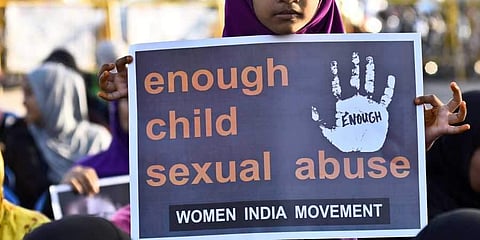

NEW DELHI: Amidst the difficulty faced by judges while dealing with cases falling under the POCSO act where consenting adolescents engage in sexual activity, Chief Justice of India DY Chandrachud on Saturday urged the legislature to consider growing concerns related to the age of consent under the 2012 Act.
The POCSO Act criminalizes all sexual activity for those under the age of 18 regardless of whether consent is factually present between the two minors in a particular case.
“I note that the topic for one of the panel discussions today is to do with the judgments of POCSO courts in “romantic cases” or cases where consenting adolescents engage in sexual activity. As you are no doubt aware, the POCSO Act criminalizes all sexual activity for those under the age of 18 regardless of whether consent is factually present between the two minors in a particular case. In my time as a judge, I have observed that this category of cases poses difficult questions for judges across the spectrum. There is growing concern surrounding this issue, which must be considered by the legislature in light of reliable research by experts in adolescent healthcare,” the CJI said while delivering his keynote address at the National Annual Stakeholders Consultation on Child Protection that was organised by the Supreme Court Committee on Juvenile Justice in association with UNICEF.
The event was also attended by Supreme Court judge Justice Ravindra Bhat, Union Minister for Women and Child Development Smriti Irani, Ms. Cynthia McCaffery (Country Representative, UNICEF India), former SC judge Justice Deepak Gupta, HC judges, judges of the POCSO courts, members of the Juvenile Justice Committees, panellists, experts.
Underscoring the impact of exposure of children to sexual violence at an early age which can lead to severe trauma and can have life-long ramifications, the CJI also said that it is imperative for the state and other stakeholders to create awareness regarding the prevention of child sexual abuse, its timely recognition, and the various remedies available in law and otherwise.
“Children must also be taught the difference between ‘safe touch’ and ‘unsafe touch’. While this was previously couched as ‘good touch’ and ‘bad touch’, child rights activists have urged parents and others to use the words ‘safe’ and ‘unsafe’ because the words ‘good’ and ‘bad’ have moral implications, especially for children, and may prevent them from reporting abuse,” the CJI said.
Chandrachud also asked the states to encourage families to report cases of abuse irrespective of the perpetrator being a family member and also urged the executive to join hands with the judiciary to prevent this from happening.
“The use of professional counselling services must also be encouraged, especially because many parents are unaware that this can help the child deal with trauma. Above all, there is an urgent need to ensure that the so-called honour of the family is not prioritized over the best interests of the child.
It is an unfortunate fact that the manner in which the criminal justice system functions sometimes compounds the victim’s trauma. The executive must join hands with the judiciary to prevent this from happening,” the judge said.
Laying emphasis on the insufficient infrastructure and low availability of trained support personnel for the judges of the POCSO courts, the judge said that there is an urgent need for all branches of the state to properly train police and support personnel, provide adequate infrastructure and disburse compensation in a timely manner.